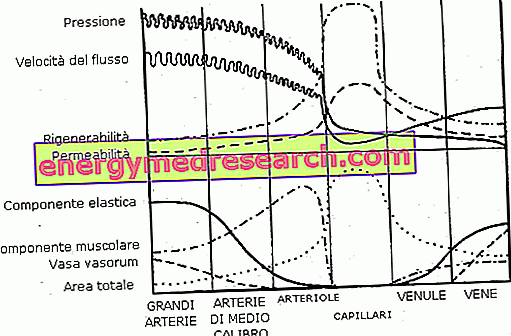Related articles: Diabetic nephropathy
Definition
Diabetic nephropathy is a complication of diabetes, characterized by sclerosis and glomerular fibrosis caused by the metabolic and hemodynamic alterations associated with diabetes mellitus.
Over the years, uncompensated diabetes can damage the vascular network that irrigates the kidneys. In particular, microvascular damage is established with thickening of the glomerular basement membrane, expansion of the mesangio and sclerosis. At the level of the renal glomeruli, these modifications cause hypertension and a progressive decrease in filtration rate. Therefore, the kidneys fail to perform their function of purifying the blood and eliminating waste substances through the urine.
Cellular metabolism products are not properly disposed of and can cause general intoxication.
Most common symptoms and signs *
- Anorexia
- Ascites
- Cachexia
- Abdominal pain
- Edema
- Glycosuria
- Hypertension
- Nausea
- Polyuria
- Proteinuria
- Water retention
- Foam in urine
- Nephrotic syndrome
- Uremia
- He retched
Further indications
Advanced diabetic nephropathy causes the progressive loss of renal function, inducing an increasing degree of organ failure.
Diabetic nephropathy is usually asymptomatic until nephrotic syndrome or renal failure develops.
The finding of persistent microalbuminuria is generally the first sign of the disorder. Diabetic nephropathy is characterized, in fact, by the loss of an increasing quantity of albumin in the urine and by an increase in blood pressure. In advanced stages, patients have the symptoms of uremia.
The diagnosis is based on medical history, physical examination, urinalysis and urinary albumin / creatinine ratio.
The treatment is represented by the strict glycemic control associated with the pharmacological management of arterial hypertension. In particular, drugs belonging to the category of ACE inhibitors and / or angiotensin II receptor inhibitors are prescribed, which reduce intraglomerular hypertension and therefore have a nephroprotective effect.



